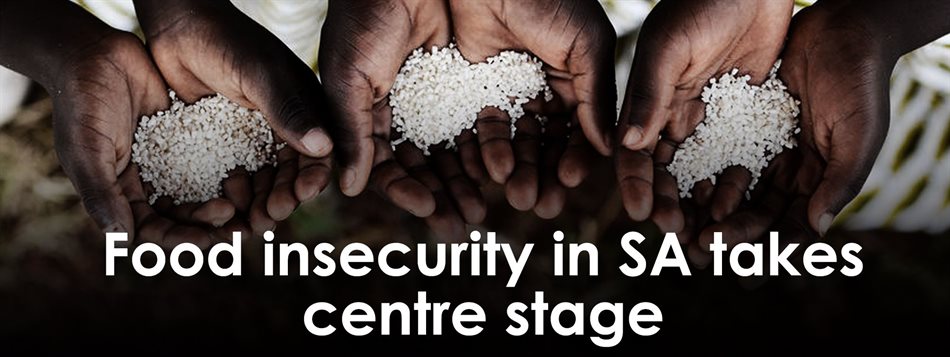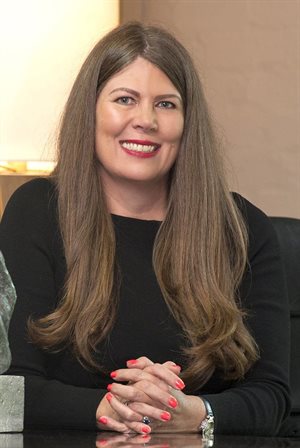Food insecurity is not a new phenomenon in South Africa. According to Oxfam, even before the pandemic and lockdown, one in for four people were going to bed hungry on a regular basis. As a result of the lockdown food security has become an even more significant issue despite the fact that the lockdown restrictions have been eased.

While overall levels of distress are declining in South Africa as the economy opens up the lockdown resulted in structural breaks in the areas of household finances, untreated chronic health issues, emotional depletion, and food security. Although level 2 brought some relief to citizens, 32% of people went to bed hungry or without food for a day. Food insecurity has persisted into level 1 with 32% of people going to bed hungry and 22% went without food for a day, according to figures derived from Ask Afrika’s Covid-19 Tracker, which is a pro bono study we have been conducting since the first week of April in order to better understand the socio-economic impact that the coronavirus, lockdown and gradual re-opening of the economy has on South Africans.
Ask Afrika is the only research company in SA which has consistently tracked Covid-19 related fears, behaviours and beliefs with brand persona’s and psychographics since the beginning of the lockdown, allowing marketers to compare consumer attitudes during the different lockdown phases. To date more than 12,000 interviews have been conducted, exploring different themes and topics each week in order to better understand the relevant issues and provide an immediate statistic.
The Tracker study reveals alarming statistics around food security. Two in three people are concerned about the amount of food in their homes, while 48% of adults in lockdown level 1 continue to reduce portion sizes and 47% reduced their meal frequencies due both to a lack of food in the home and the fact that they don’t have the money to buy more food. While most households tend to prioritise feeding their children, 26% of children are going to bed hungry.
While government food parcels alleviated food insecurity to some extent in the earlier stages of the lockdown, significantly fewer people have noticed government food parcel distribution in recent months. Many of those in financial distress have applied for the government’s Covid-19 social grant of R350 per month while 20% have applied for a SASSA grant and 10% have applied for a TERS grant. Encouragingly, 60% of respondents who applied for grants have received them.
Exacerbating citizens financial hardships, respondents have noted the rising cost of living with 74% concerned about the rising cost of living and 87% concerned about the rising cost of food. Two-thirds of respondents have noted a decline in their standard of living with 46% indicating that their household monthly income is not sufficient to cover current household expenses.
Of concern is a recent United Nations (UN) prediction that households whose employment type changes to contract employment have a 40% chance of falling into poverty. The UN has cautioned that South Africa’s overall GDP will decline between 5.1% and 7.9% in 2020 and that the number of households living below the poverty line will increase as households move out of the lower-middle class due to the pandemic. In addition, they predict that 34% of households will exit the middle class.
While grant’s go some way towards alleviating food insecurity there is no question that food security and financial wellbeing need further structural interventions and that more needs to be done to target the vulnerable middle class on the brink of entering poverty.
While a third of South Africans are hopeful that the economy will bounce back in the next six months, there is a recognition that an economic recovery will require serious intervention and cannot be business as usual. There is low confidence in the presidential employment stimulus plan with 61% of respondents agreeing that public-private partnerships are important to drive economic growth.
Businesses can play their part in alleviating food security by partnering with NGOs and government to offer relief to vulnerable households through food parcels, food banks and feeding schemes. Sustainable long-term interventions are required to move South Africa out of a second pandemic. Price stability in the market will be essential as consumer wallets cannot absorb increases. Community vegetable gardens can go a long way to assist vulnerable households. Additionally, consumer education with regards to food nutrition and nutritious low-cost recipes could ensure that vulnerable households can maintain their wellbeing.

Andrea Rademeyer is much more than a CEO and Intellectual Researcher—she is an icon for female entrepreneurs on the continent and has gained success and global recognition as a leader in her field over the last 25 years. She sees business as playing a pivotal role in shaping and changing society and is committed to that change through uplifting societal voices... Her commitment to honouring the voice of South African citizens is born out of an enduring passion for all things socio-political. Ask Afrika was founded in social research and this drive is still evident in weekly Covid-19 measurements, directed by Andrea’s thought leadership.
She is an acclaimed conversationalist who is respected for her integrity, loved for her eccentricity and well known for enjoying life to the fullest, having taken the front-seat on the roller-coaster of life.
Ask Afrika is known for innovative methodologies and Decisioneering. Andrea has served on two Covid-19 MAC technical committees led by Prof Mokgatle and Prof Mehtar.
The Ask Afrika Covid-19 Tracker is her passion and contribution to our country, during the Coronavirus Trauma.
Andrea is registered with SAMRA, ESOMAR, PAMRO and as a research psychologist, with the Health Professions Council of South Africa. She successfully completed the YPO-WPO Presidents’ Program at Harvard Business School, Boston USA (2015, 2016,2017, 2018) and has delivered several International papers, complimented by leadership awards and accolades
About Ask Afrika
Ask Afrika is a decisioneering company. We support our clients’ decisions through facts. Typically, our clients’ require information around social research and philanthropy, experience measures and consulting, and brand dynamics.
Social research decisions are required around HIV/Aids and more recently, Covid-19. Educational and early childhood development, fair-trade shopping, media and financial research are some of the areas we love to work in. NGO’s, public- and private sector clients choose to work with us to get the pulse of the nation.
Besides being decisioneers in brand and customer experience research, Ask Afrika is well known for creating some of the most useful, go-to industry benchmarks, including the Ask Afrika Orange Index®, the Ask Afrika Icon Brands®, the Ask Afrika Kasi Star Brands and the Target Group Index (TGI). Ask Afrika’s knowledge of brands is extensive. The Target Group Index (TGI) survey, which measures psychographics, service, products, media and brands, has been used by the majority of the top 50 advertisers and media owners in South Africa for nearly two decades.
Our clients operate across various industries, including retail, telecoms, finance, and the public sector. We offer tailor-made and ready-to-use offerings for all our clients regardless of the size of project.
In addition to being brave, agile, vibrant and experimental, we apply deep thinking to every research project. Our aim is to be great at everything we do and to make a meaningful impact.
Partner with Ask Afrika in order to confidently make game-changing business decisions that grow your business.
Contact us today and speak to Maria Petousis (az.oc.akirfaksa@sisuotep.airam/az.oc.akirfaksa@tcennoc)
www.askafrika.co.za
